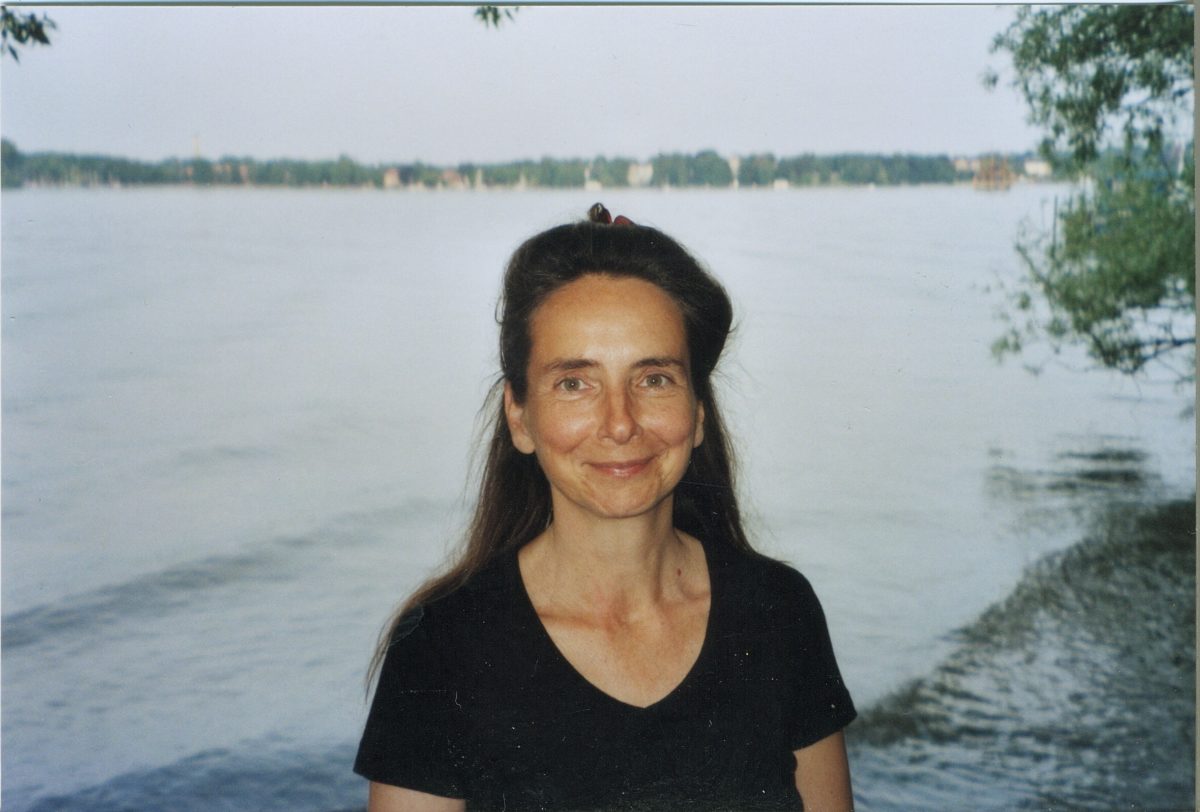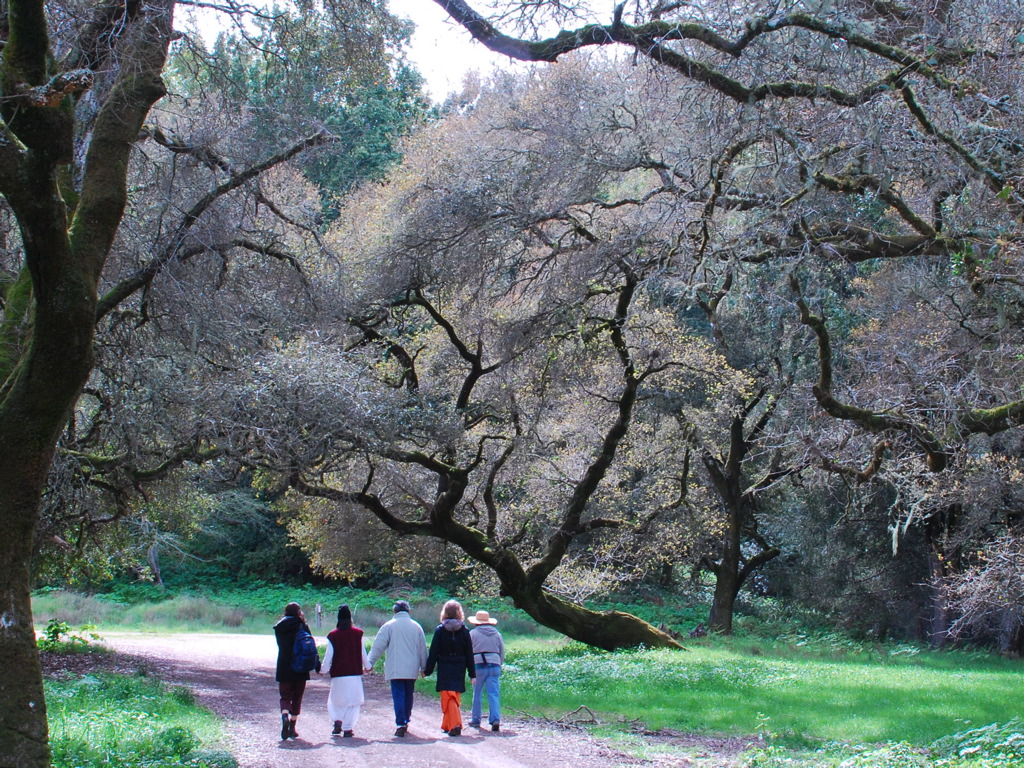By Bettina Romhardt

“A mother’s life is not confined to her alone. She is the starting point of life that unfolds into the infinite future. With this in mind, a mother should be careful in thoughts, choice of words and behavior, and live her life with reverence.”
– Shundo Aoyama, a Japanese Zen priest
The love of a mother is highly valued in different religions and cultures.
By Bettina Romhardt

“A mother’s life is not confined to her alone. She is the starting point of life that unfolds into the infinite future. With this in mind, a mother should be careful in thoughts, choice of words and behavior, and live her life with reverence.”
– Shundo Aoyama, a Japanese Zen priest
The love of a mother is highly valued in different religions and cultures. It is often evoked as the highest expression of unconditional and selfless love. Many mothers share that they hadn’t experienced this kind of devotion before giving birth to a child. In the Discourse on Love, we find: “Just as a mother protects and loves her only child at the risk of her own life, we should cultivate boundless love to offer to all living beings in the entire cosmos.” Yet many mothers don’t appreciate that motherhood can be a kind of spiritual training, a path to explore love and to learn true love.
I became a mother one year after I left Plum Village, where I had lived in Lower Hamlet for five years. I’d made a big change from life in an international community to life within a small family. For me, giving birth was one of the most powerful experiences of my life, and our son Jonathan filled my husband Kai and me with love and amazement. My husband and I had both lived in Plum Village before our marriage, and as a married couple we continued to live a life centered in the practice, but I could not appreciate being a mother. I was used to offering my time, energy, and care to the members and guests of the Sangha, and now I found myself caring for one little being, twenty-four hours a day. It felt somehow narrow.
It took time to discover that I was being asked to cultivate and strengthen the same qualities I had practiced in Plum Village: presence, discipline, patience, kindness, devotion, and letting go. One night when I got out of bed to tend to Jonathan, I remembered how much I had appreciated getting up to greet guests when they arrived late at night at the Lower Hamlet. I smiled, seeing that life always asks us to respond to what is needed in this very moment in whatever form it appears, no more, no less. In the faces of mothers and fathers I met, I began to see their dedication and effort, their steadiness and generosity, their tiredness and exhaustion, and I felt much appreciation and compassion for them.
Looking Deeply at Motherhood
But amazingly, when I looked more deeply, I saw many mothers who could not appreciate themselves as mothers, or who appreciated themselves very little, and I began to wonder why this was so. One aspect is that our modern society doesn’t really value being “just a mother,” but there are also inner attitudes that contribute. One is the ideal of the “perfect” mother as a source of never-ending energy for her children, which is very hard to live up to and can lead to feeling “never good enough.” There are many such ideals, personal and collective, transmitted to us by our mothers, grandmothers, ancestors, and society. We need awareness of these expectations to be able to relax into the challenges of daily life with loving kindness towards ourselves and acceptance of our limitations.
Listening to mothers talking to one other, I also discovered that about eighty percent of their conversation is about the life, growth, and development of their children, and very little of it is about how they themselves are growing as mothers and what they are learning about themselves. Becoming a mother seems so natural that there is often little awareness about what it really means in one’s personal life and growth. It is very beneficial to look at this.
After offering days of mindfulness for families for some years, I started to offer retreats for mothers so that they could take time and space to deeply look into motherhood. In guided meditations we look into what we have learned as mothers, what we have given to our children, and what they have given to us. One participant said, “I learned with my children something I could not accept before: that I can’t control life. With my children I constantly need to let go of my plans and see my needs as only one part of the whole picture.” Another said, “I feel so challenged to develop patience, seeing my daughter forgetting her jacket here and there.” Just by giving attention, mothers see so many of the wholesome qualities they have cultivated. Joy, appreciation, confidence, and strength grow out of this awareness. If I appreciate and love myself as a mother, appreciation and love for my child can flow naturally.
Another common concern among mothers is finding time and energy to practice a spiritual path. A frequent comment is “I am often too tired for sitting meditation.” A mother of a young child cannot spend hours in sitting meditation, but we are challenged to cultivate and strengthen qualities of heart and mind, which we often attempt to do in extended retreats. In our tradition, we are invited to practice twenty-four hours a day, and we will not find any place or time on earth that doesn’t allow us to practice being mindful. But we need to take care of ourselves and restore our energy in order to sustain and strengthen the energy of mindfulness, concentration, and insight.
“Mama, You Can Go Rest”
To take time “just for myself ” is often challenging for a mother. I need to look deeply to see that by respecting myself, I respect my child. Every hour of every day, I transmit everything to my child: my joy, irritation, contentment, sadness, the way I talk, the way I think or handle my emotions. Of course, parents want to offer the best to their children—the best food, the best kindergarten, and the best school—but they also need to keep in mind Thay’s teaching that the best we can offer is our true presence and our own happiness.
The practice of stopping to care for myself and my child is crucial. If I stop and take three breaths, I can come back to myself and remember, “I am here for me and I am here for you.” When I am in touch with myself, I feel my true needs and learn to take care of them. I need to nourish myself with the same wholesome nutriments I feed my child. In my experience, children understand and support our efforts to do this. When Jonathan grew old enough to no longer need a nap in the afternoon, I told him that I still needed this time to stop and renew myself. Nowadays he sometimes tells me, “Mama, you can go rest.” We need creativity to find time for our true needs and we need discipline to take care of them.
It is wonderful to sit in a circle of mothers, sharing our joy and pain, our experiences and questions. Let us create circles of mothers to support one other on the path of learning true love for ourselves, our children, and all beings.

Bettina Romhardt, Tree of True Awakening, is a Dharma teacher practicing with her son Jonathan (7), her husband Kai, and the Sangha Zehlendorf/Berlin.

